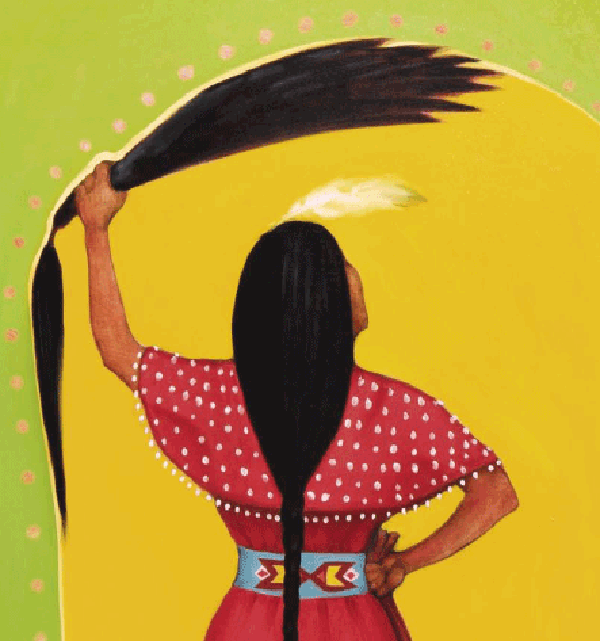Despite the abuse that almost took her life, Harjo now declares, “I’m not a victim. I’m a survivor. I am the First Lady of The Seminole Nation. I’m a councilwoman. I now have the opportunity to share my story and let people know it can happen to anybody. It’s not drunks. It’s not the poor people. It’s not the uneducated. It’s anybody.”
Harjo is on a mission to protect abused women and their children and to change a culture that has ignored, even accepted, abuse. What she once hid from her closest friends and family members she now shares openly with the hope of helping others.
She was a divorcee and mother of two when she married a man she had known since she was 12 years old, someone she considered “always sweet, fun loving, smiling” and someone “everybody loved.” Together they had one child.
Less than three months after they were married, her husband slapped her. “It hurt so bad,” she recalls. “It was one of those white burning fire things. My face was just burning.” In disbelief, she walked from the room. “Looking back now, I know that was my very first mistake, just letting it go, not saying anything to him. It was like it never happened. We just ignored it.”
But it wasn’t long until she was assaulted again, and again. “Each time he got mad, each time he abused me, it got a little bit worse.” Yet Harjo says she continued to live in denial, refusing to see herself as an abused wife. “I always gave him an excuse.”
After one vicious beating, she was taken to Carl Albert Indian Hospital in Ada, Oklahoma. “They asked me what happened. I lied. I told them I had a dirt bike wreck. I did not want to believe that he had done this to me.”
Before leaving the hospital, Harjo finally acknowledged the truth: “I realized that battered woman that you see on TV is me. That is me. I am a battered woman.”
Eventually she took out a restraining order and filed for divorce, actions that prompted her former husband to take his own life.
Harjo credits her friends and family with helping her not blame herself for his suicide. “I know it wasn’t me…that’s something we all have to reach at some point it time. It’s not you. No matter what you do you’re not going change them. They have to change themselves…. I reached that point.”
Harjo also found support, strength, and hope at her Hitchitee Church, a place filled with joyful memories for her. “I grew up here. I could come here and feel secure. I could feel safe. This is home . . . this is just a building, but to me it’s sacred ground because so much has gone on here in my life.”
Harjo has been a driving force in helping her tribe establish a domestic violence program and a shelter for abused women and their children. In six years, the shelter has grown from one-and-a-half staff members to 14. The program, beginning with children, seeks to stop the cycle of abuse.
Teaching a small child who hits another child that everything can be made right by saying “I’m sorry” is unacceptable, she says. Her own abuser did that. “No,” she exclaims, “telling me you’re sorry is not all right. Don’t hit.”
Harjo tells women not to blame themselves for their abuse. “Anything you do does not give him the right to beat you, to hurt you, to abuse you. . . . Help yourself. Help your children. Get out of the situation at the first sign. Don’t be silent. Tell somebody. Leave. Stand up for yourself. That first slap can lead to so much more. Just stop it there.”
SHEILA HARJO is a survivor and out-spoken public advocate for victims of domestic abuse. As First Lady of The Seminole Nation of Oklahoma and Councilwoman, she has helped her tribe establish a shelter for abused women and their children and develop a program to break the cycle of abuse she says is all too common among Native families.
DOWNLOADS
| Video | Download the MP4 file | ||
| Story & Bio (2 pgs; 252 KB) |  | ||
| Poster (14.4" x 21.6"; 563 KB) | |||
| Facebook banner (851 x 358 pixels; 140 KB) |  | ||



